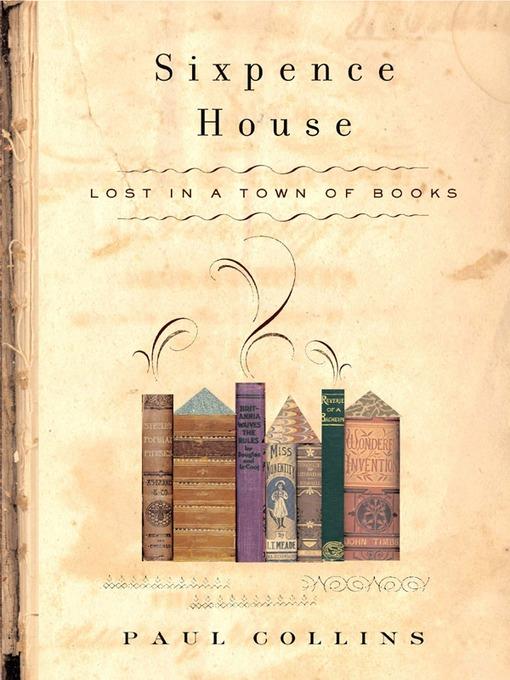
Sixpence House
کتاب های مرتبط
- اطلاعات
- نقد و بررسی
- دیدگاه کاربران
نقد و بررسی

April 14, 2003
Hay-on-Wye, a Welsh town of 1,500, is heaven on earth for people who love books, especially old books. It has 40 bookstores, and if you can't find what you want in one of them, you can fork over 50 pence and visit the field behind the town castle, where thousands more long-forgotten books languish under a sprawling tarp. McSweeney's
contributor Collins moved his wife and baby son from San Francisco to Hay a few years ago, intending to settle there. This book is Collins's account of the brief period when he organized American literature in one of the many used-book stores, contemplated and abandoned the idea of becoming a peer in the House of Lords, tried to buy an affordable house that wasn't falling apart (a problem when most of the buildings are at least a century old) and revised his first book (Banvard's Folly). Collins can be quite funny, and he pads his sophomore effort with obscure but amusing trivia (how many book lovers know that the same substance used to thicken fast-food milk shakes is an essential ingredient in paper resizing?), but it's hard to imagine anyone beyond bibliophiles and fellow Hay-lovers finding enough here to hold their attention. Witty and droll though he may be, Collins fails to give his slice-of-life story the magic it needs to transcend the genre. (Apr.)Because
PW was unable to run this review in Lifestyles Forecasts, April 7, it is appearing in this week's Nonfiction Forecasts.

April 1, 2003
This book is unique in its modesty in handling the largely historical topic of books as tokens of our humanity. Collins (Banvard's Folly) gently sifts through geography, eccentric architecture (retrostructures), and Victorian and American trivia to weave a charming, humane, and attractive story of a man and his family relocating from California to England to work with antiquarian books. The author settles with his wife and younger son in a small town on the Welsh border that only has 1500 inhabitants but more than 40 antiquarian bookstores. He lands a job as a clerk at the town's largest bookstore and spends his days shifting through piles of old books. This part travelog, part literary memoir is a thoughtful exploration of one person's fascination with books, a human study of utility that dovetails with Elaine Scarry's more theoretical Dreaming by the Book and Alberto Manguel's A History of Reading. Highly recommended for all libraries and for all readers who know the joy of being lost in a town of books.-Scott Hightower, Fordham Univ., New York
Copyright 2003 Library Journal, LLC Used with permission.

April 15, 2003
The " McSweeney's" gang may be the closest thing we have to a genuine literary circle; if its members have produced smug, postmodern chapter titles, such as "Chapter Two relies on the travelogue cliche of a garrulous cabdriver," they've also written some books that whistle like fresh air through the bookstore. Collins' travelogue/memoir is a book lover's delight, minus the pretense you might expect from someone schooled in obscure eighteenth- and nineteenth-century literature. With his wife and young son, he moves to Hay-on-Wye, Wales, a village with one bookstore for every 37.5 residents. The narrative is structured around his house-buying attempts and the impending publication of his first book, but the meat of the work lies in his meandering asides and bookstore discoveries. His intellect changes focus often, but crisply, and it's a pleasure to observe him in the act of observation: Who would have thought there was still new ground to cover on the topic of Anglo-American differences? Collins muses often on the impermanence of books, but this one will grace shelves for years to come.(Reprinted with permission of Booklist, copyright 2003, American Library Association.)

























دیدگاه کاربران